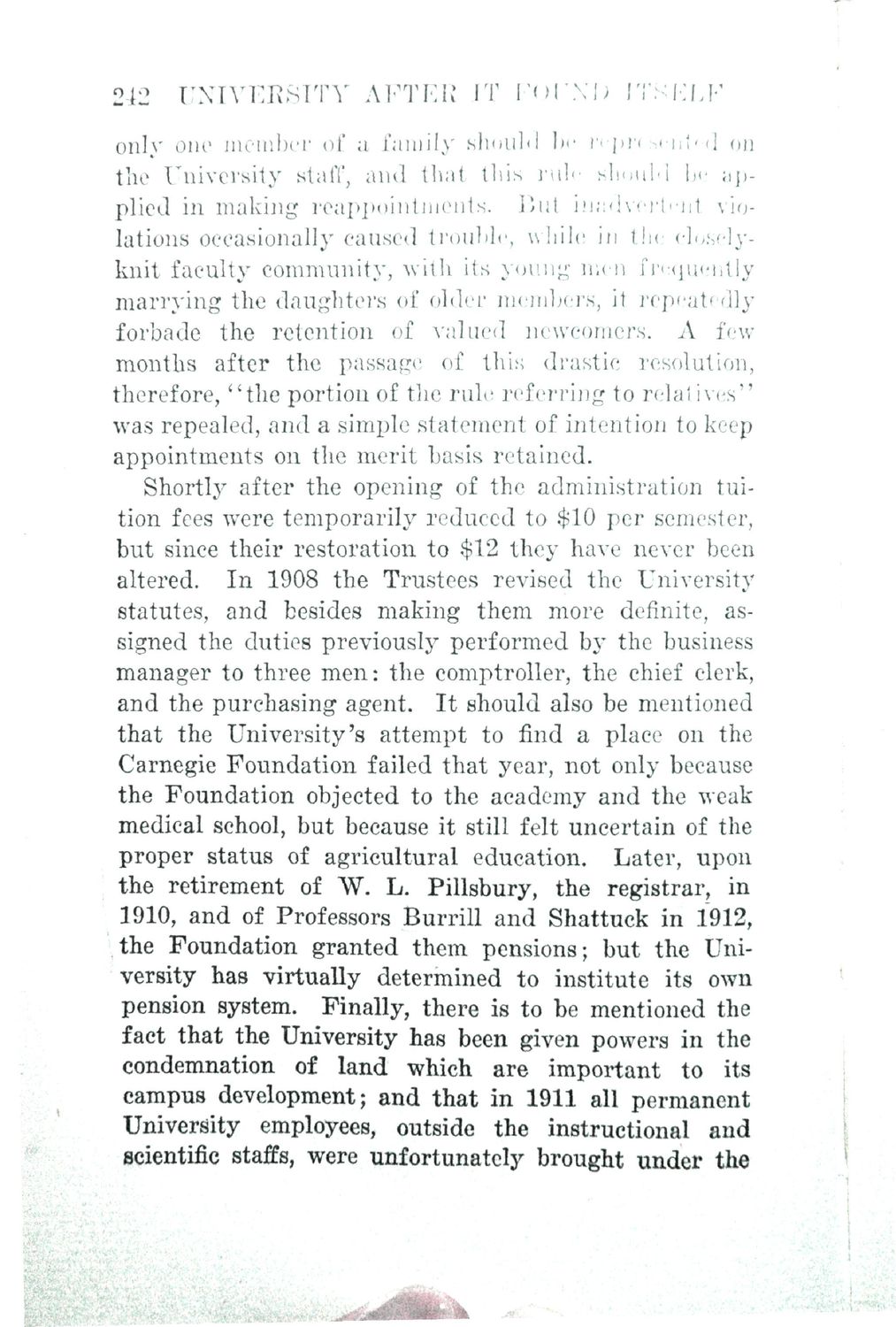| |
| |
Caption: Book - History of the University (Nevins)
This is a reduced-resolution page image for fast online browsing.

EXTRACTED TEXT FROM PAGE:
242 UNIVERSITY AFTER IT FOUND ITSELF only one member of a family should be represented on the University staff, and that this rule should be applied in making reappointments. But inadvertent violations occasionally caused trouble, while in the closelyknit faculty community, with its young men frequently marrying the daughters of older members, it repeatedly forbade the retention of valued newcomers. A few months after the passage of this drastic resolution, therefore, "the portion of the rule referring to relatives'\ was repealed, and a simple statement of intention to keep appointments on the merit basis retained. Shortly after the opening of the administration tuition fees were temporarily reduced to $10 per semester, but since their restoration to $12 they have never been altered. In 1908 the Trustees revised the University statutes, and besides making them more definite, assigned the duties previously performed by the business manager to three men: the comptroller, the chief clerk, and the purchasing agent. It should also be mentioned that the University's attempt to find a place on the Carnegie Foundation failed that year, not only because the Foundation objected to the academy and the weak medical school, but because it still felt uncertain of the proper status of agricultural education. Later, upon the retirement of W. L. Pillsbury, the registrar, in 1910, and of Professors BurrilJLand Shattuck in 1912, the Foundation granted them pensions; but the University has virtually determined to institute its own pension system. Finally, there is to be mentioned the fact that the University has been given powers in the condemnation of land which are important to its campus development; and that in 1911 all permanent University employees, outside the Instructional and scientific staffs, were unfortunately brought under the
| |